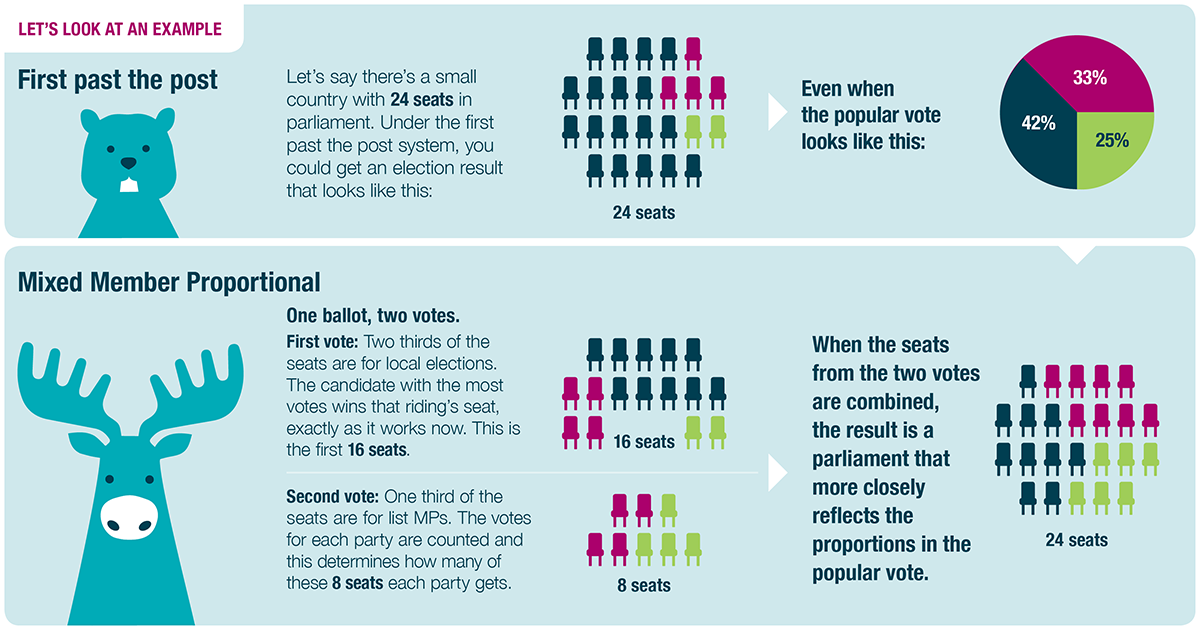The election system in Canada is unfair. Canadians feel like their votes don’t matter. People feel like their voices aren’t being heard.
First past the post
The way federal elections work now is called “first past the post.”
That means that the candidate who wins the most votes in a riding wins. No matter how tight the race was, the votes for all the other candidates don’t matter. Those votes don’t factor in to how the government is formed.
Parties win majority governments with less than 40 per cent of overall votes. Other parties end up with few or no seats, even if they win a substantial part of the popular vote across the country.
That’s why countries like Scotland, Germany and New Zealand made the switch to Mixed Member Proportional.
And we can do it, too. We can do it now.
Mixed Member Proportional Representation
Mixed Member Proportional Representation (MMP) is a much fairer way to elect governments than the way we do it now.
Voters want every vote to count, but they also want an MP who has a personal connection to their riding. With MMP you get the best of both worlds: one ballot, two votes.
One vote is for your choice of local candidate and it works exactly the way elections work now: the candidate with the most votes wins.
Your second vote is for the party of your choice. The parties will have a ranked list of candidates who will be elected in order based on this vote. The votes are tallied and the proportion of votes determines how many of these seats each party gets.




